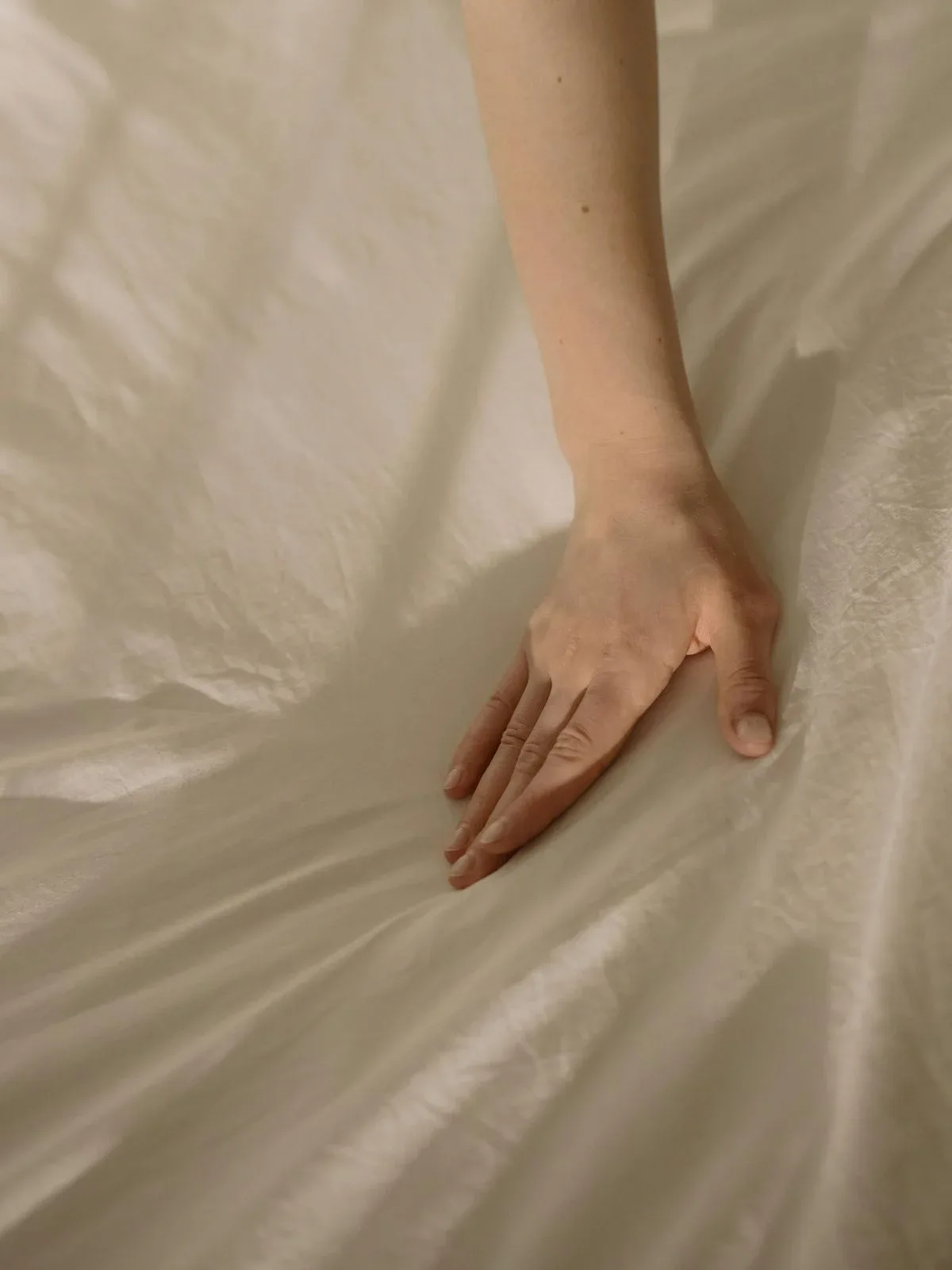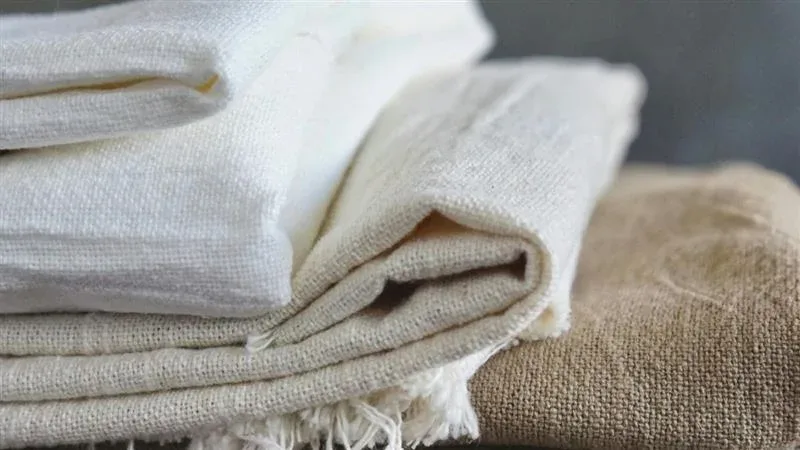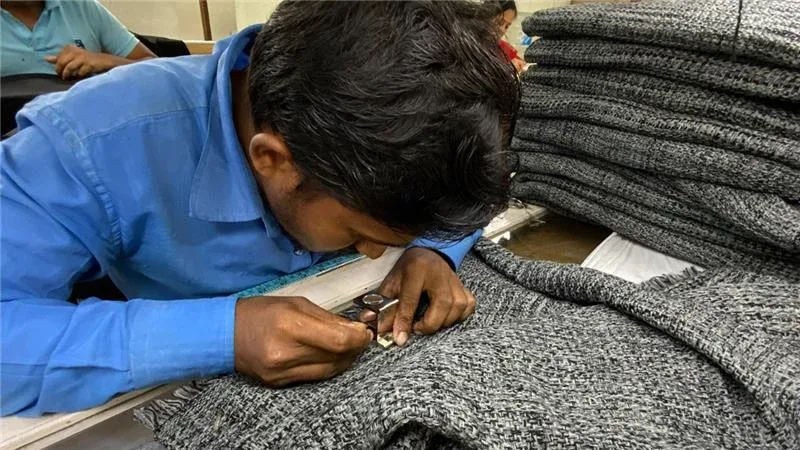In selecting cotton fabric for clothing, there are additional aspects apart from feeling and thread count. Understanding how the fabric came to be, how it was made and what it represents has gained significance, as being conscious isn’t a privilege but a duty today. People have to choose between the tradition of hand-made craft and the dependability of products made by machines. Anyone trying to maintain customs while embracing progress must learn about both aspects.
A Conscious Choice in Cotton
The Craft of Hand-Woven Cotton Fabric
Cotton textiles that are hand-woven have a long history in India. It expresses itself through the textures made by skilled artisans’ hands. The patience and skills that go into their creation are clear in each metre. Each batch is always different. The irregularity of organic fibres gives clothes a unique personality. What attracts many is the ideas, as well as the style. It backs traditional artisans, maintains old handmade techniques and is closely connected to sustainable aims. Svarna’s handcrafted items, such as scarves, capture the spirit of India well. Since cotton is soft and breathable, it is ideal for choosing clothes in warm weather and for sensitive skin.
Machine-Made Cotton Fabric: The Precision of Progress
Meanwhile, cotton produced by machines is famous for being produced quickly, in large numbers and with uniformity. This process fits well with making a lot of goods, producing them steadily and sending them around the world. Fabric rolls from fast looms have equal texture, strong weaves and precise finishes. Indian exporters of textiles depend heavily on machine-woven fabric. It works with clothing companies that focus on perfect measurements. At the same time, this pattern comes with some drawbacks. Sometimes, industrial-scale clothes are made using chemicals, non-natural dyes and machinery that takes a lot of energy, which can be damaging to the environment.
Environmental Impact: Weaving the Future
As we seek more sustainable options, the type of fabrics we use affects the future of our environment. Generally, hand-weaving cotton calls for less water, fewer chemicals and simple manual action. It is consistent with sustainable fashion and eco-friendly progress. The cotton produced without protecting the environment in mind may become industrial waste. Fortunately, Svarna practices responsible business. They are committed to sustainable practices, even when using machinery for manufacturing, as one of the trusted companies in India. Certified organic cotton fabric is used, ensuring comfort as well as following ethical standards for production.
Tactile Differences: Feel the Weave
Touch a hand-woven cotton kurta and compare it with a shirt made from machine-woven cotton. The former offers uneven softness and a slightly raw feel. The latter feels crisp, smooth and structured. Hand-woven cotton breathes more, stretches slightly and adapts gently to the body. Machine-made cotton stays sharp longer, holds shape and dyes more evenly. Designers often choose based on the narrative of the garment. While hand-woven suits have flowing silhouettes, machine-made ones lend themselves better to tailored garments.
Economic and Social Impact: The Human Thread
Choosing hand-woven cotton supports artisan livelihoods. Every purchase fuels local economies, revives weaving clusters and ensures traditional crafts remain relevant. With brands like Svarna promoting handmade textile products crafted by local artisans, the bridge between heritage and modernity grows stronger. On the other side, machine-made fabric ensures employment across factories, trade logistics and export operations. A balance between both can be healthy. In this equation, cotton fabric exporters like Svarna play a vital role. They cater to both global demand and local heritage.
Sustainability Credentials and Certifications
Today’s mindful buyer looks beyond product tags. Certifications like GOTS, OEKO-TEX and Fairtrade have gained importance. Hand-woven fabric, especially when derived from organic cotton, ticks multiple boxes. However, many sustainable fabric suppliers now bring machine-woven options that meet similar benchmarks. Svarna’s organic cotton fabric collection is not just gentle on skin but responsible for its journey—from farm to finish. They offer transparency, something most fast-fashion chains often overlook.
Design Possibilities: Bridging Aesthetics with Function
Designers thrive on variety. Some collections demand rustic charm, others need uniform elegance. Hand-woven fabric allows experimentation with textures, gradations and irregular dye effects. Machine-made fabric offers better structure for formalwear, uniforms and coordinated sets. Svarna’s range demonstrates this diversity well, from breezy everyday cotton to sharply cut ensembles ready for international markets. Their standing as one of the seasoned textile manufacturers in India stems from their ability to navigate both worlds with finesse.
The choice between hand-woven and machine-made cotton fabric doesn’t have to be divisive. It’s about intent, purpose and impact. Both have value. Both tell stories. Whether you seek the heritage of a loom or the precision of machinery, let the choice align with sustainability, comfort and craft. Today’s consumer isn’t just buying fabric, they’re investing in a process. They are shaping an industry. With forward-thinking brands like Svarna, your options remain beautiful, ethical and future-ready.
Svarna is a leading name among sustainable fabric manufacturers in India. With a deep commitment to craft and innovation, the brand offers organic cotton fabric, handmade textile products and responsibly made cotton fabric for clothing. As a trusted cotton fabric exporter and one of the most respected sustainable fabric suppliers, Svarna balances tradition with technology, ensuring you never compromise on values or style. Explore their product range and join the movement toward conscious fashion.
FAQs
1. Hand-woven vs machine-made cotton?
Hand-woven is artisanal; machine-made is uniform.
2. Why pick organic cotton fabric?
It’s eco-friendly and ethically made.
3. How does Svarna support handmade textiles?
They empower artisans and preserve craft.



